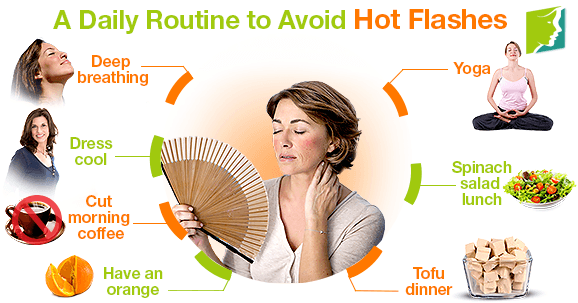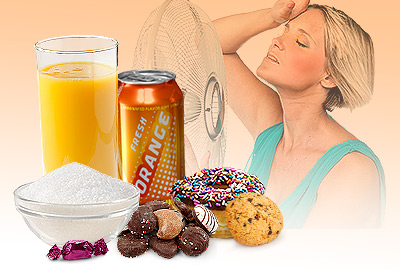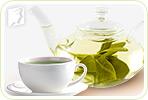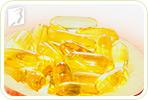Hot flashes are one of the most common symptoms of menopause, affecting 75% of women in the United States. There are many effects associated with them that can get in the way of productivity and happiness. Although the causes are deeply rooted in hormonal changes that are difficult to overcome, there are many ways to ease them. There are several triggers throughout a day that can initiate bursts. When you adopt positive habits into your daily routine, it can decrease side effects of hot flash episodes like body heat, rapid heartbeat, and shallow breathing.
Deep Breathing
Instead of jumping out of bed in the morning and going about your busy life straight away, slow things down. When you wake up, sit on a level surface upright and breathe slowly and deeply for 15 minutes. Allow a five-second inhale deep into your belly, then a five-second exhale to release tension. This is important because anxiety is a leading trigger for mood swings. When you start your day off on a relaxed note, you will be calmer and better able to take full breaths during a hot flash.
Dress Cool
Loose, light colored layers are essential for keeping cool. No matter how cold out it is outside, make sure your bottom layer is a tank top. This way, when you start to feel a hot flash, you can adjust accordingly - which will make you feel more in control and keep you from overheating. Read more on dressing for hot flashes.
Cut Morning Coffee
Caffeine is a known trigger for hot flashes. The spike in energy levels may wake you up temporarily, but it also causes the heart rate to quicken, creating a panicky experience. Instead, try an iced, decaffeinated alternative. In addition, to give yourself energy in the morning, make sure to eat a well-balanced breakfast.
Have an Orange
Citrus fruits contain phytoestrogenic bioflavonoids, which are great for reducing the duration and frequency of hot flashes. Oranges are a smart snack choice if you're prone to the heat.
Spinach Salad Lunch
Raw spinach is booming with vitamins and minerals, perfect for keeping your body balanced. Preliminary research shows that the vitamin E and magnesium content in spinach and other dark leafy greens can reduce symptoms of hot flashes. Put your favorite toppings on a salad and enjoy.
Yoga
Calm back down after a long, hectic day. Yoga can prevent hot flashes by balancing your blood circulation, deepening your breath, and releasing gamma-aminobutyric acid (GABA). GABA is a neurotransmitter that induces deep relaxation.
Tofu Dinner
The declining estrogen levels during menopause directly affect the hypothalamus in the brain, which makes your body heat rise unnecessarily. Soy is bursting with phytoestrogens, plant compounds that work in the body like estrogen. Have a delicious tofu stir fry with your favorite mixed vegetables to bring your body back to normality.
If you follow this daily routine, you may find that your body does not react as dramatically to hot flashes. You will be calmer, your body temperature will not rise too high, and you will be able to fulfill your daily tasks. There is no reason why this symptom should have to be so disruptive. It only takes a few adjustments to your daily habits to find extreme relief. Before turning to extreme medical procedures or medications, try these shifts.
Sources
- Carmichael, S.L. et al. (2011). Estimated dietary phytoestrogen intake and major food sources among women during the year before pregnancy. Nutritional Journal, 10, 105. doi: 10.1186/1475-2891-10-105
- National Center for Complementary and Alternative Medicine. (2012). Soy. Retrieved March 3, 2014, from http://nccam.nih.gov/health/soy
- Park, H. et al. (2011). A pilot phase II trial of magnesium supplements to reduce menopausal hot flashes in breast cancer patients. Supportive Care in Cancer, 19(6), 859-863. doi: 10.1007/s00520-011-1099-7
- Sood, R. et al. (2013). Paced Breathing Compared with Usual Breathing for Hot Flashes. Menopause, 20(2), 179-184. doi: 10.1097/gme.0b013e31826934b6
- Streeter, C.C. et al. (2010). Effects of Yoga Versus Walking on Mood, Anxiety, and Brain GABA Levels: A Randomized Controlled MRS Study. Journal of Alternative and Complementary Medicine, 16(11), 1145-1152. doi: 10.1089/acm.2010.0007
- Ziaei, S. , Kazemnejad, A. & Zareai, M. (2007). The effect of vitamin E on hot flashes in menopausal women. Gynecologic and Obstetric Investigation, 64(4), 204-207. Retrieved from http://www.ncbi.nlm.nih.gov/pubmed/17664882




